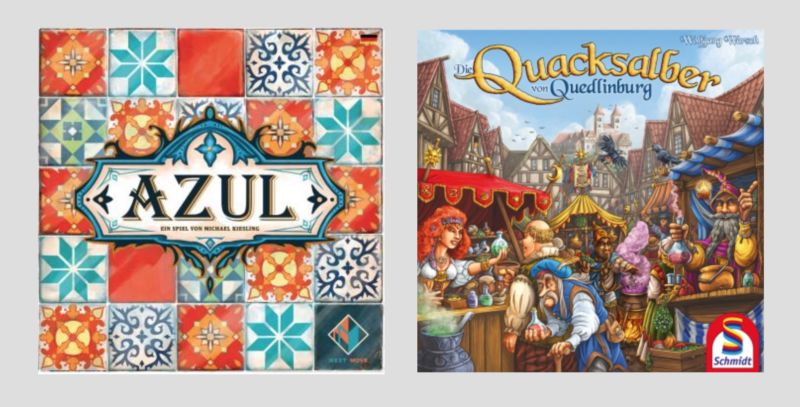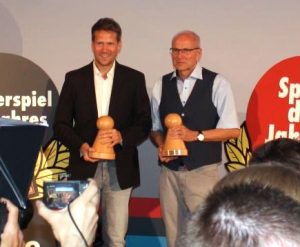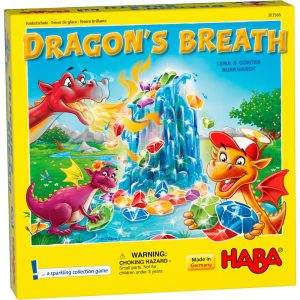
This past weekend, we looked at the shortlisted nominees for the Spiel des Jahres, board gaming's biggest annual award. This morning at a press conference in Berlin, the awards—complete with large wooden pawns for the winners—were handed out.

The main award, which traditionally goes to a lighter, family-style game, went to Azul, a gorgeous tile-laying game from designer Michael Kiesling. A second award for slightly more complex titles (the "Kennerspiel des Jahres") went to Die Quacksalber von Quedlinburg, Wolfgang Warsch's press-your-luck game about building dubious potions with ingredients drawn blindly from a bag. Both Kiesling and Warsch had multiple nominations on the two award shortlists; in the end, each designer went home with one of the coveted pawns.
Azul is one of those games that's so simple and elegant in its mechanics yet deep enough in its play that it feels like a "new classic." The Spiel des Jahres jury praised its "wonderful aesthetics," the quality of its bakelite game pieces, and the way "author Michael Kiesling managed to give a simple selection mechanism so much depth that it is almost endlessly replayable." (At least, that's what was said according to my translation, with help from Google Translate.) Unlike many modern boardgames, Azul is already widely available... and at a reasonable price of $35 or so. A sequel, about building stained glass windows, has already been announced.

We haven't had enough time to really evaluate Quacksalber (which has a fair amount of German text on its components), but the good news is that it will be widely available in English this fall. In announcing the game's win, the jury praised Quacksalber's ability to evoke feelings of "Schadenfreude, Jubel, und Wehklage" ("schadenfreude, cheers, and despair"), adding that the game was a tasty dish for "Spielegourmets."
For in-depth reviews of each game, I recommend this one for Azul and this one for Quacksalber.
Finally, for very young children, the Kinderspiel des Jahres—which was announced a few weeks ago—went to the HABA game Funkelschatz (Dragon's Breath in English) by Lena and Günter Burkhardt. The game features gems encased in a stack of ice rings. Baby dragons bring a parent along to melt the rings with dragonfire; as each ring is removed, gems spill out onto the board and can be gathered for points.
reader comments
40